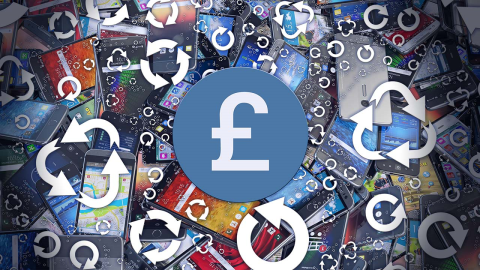

If you’ve ever woken up feeling poorly rested and tired, you might be spending too much time on your smartphone before bed.
I think it’s safe to assume that most people struggle to live without their smartphone. We now rely on our devices for everything from watching TV shows to online grocery shopping and connecting with friends. The extent to which many people use their handsets has become such a problem that it’s hard to detach before bedtime. New research conducted by LaptopsDirect.co.uk shows that 68% of people use their handsets in bed, with the average Briton spending 57 minutes on the device before actually falling asleep. Harvard Business School found a similar result in their own research, with 56% of users checking their handset within an hour of sleep.
Much like any other technology with a screen, smartphones emit light, which has a significant impact on our ability to sleep. Brightness is a culprit, though it’s the blue light which is the main issue. This particular form of light suppresses melatonin in the brain, a hormone that regulates your sleep cycle. It tricks your brain into thinking there’s still daylight, making it harder to switch off. Research from the Mayo Clinic in Arizona shows that 30 lux is the brightness level where melatonin starts getting suppressed, a figure far higher than the average smartphone outputs. Testing a bunch of handsets and tablets at 14 inches from the face, they concluded that “only at the highest setting was the light over a conservative threshold that might affect melatonin levels”. Holding them a foot away from your face yielded even better results, with just the iPad 3 eclipsing 30 lux. It’s a fair assessment, though it’s worth noting that the study was conducted in 2013. With mobile screens getting progressively better and brighter, we might be seeing a time soon where that figure begins to become a problem.
If you’re the type of person who insists on using their handset before bed, there’s a few options to consider which will help with those winks. Sleep.org recommends not using technology for at least 30 minutes before bed, as this will allow your brain to adapt back into the natural sleep cycle. Some devices such as the Apple iPhone have begun shipping with a ‘night mode’, which limits the amount of blue light to help regulate the brain. If you’re phone doesn’t support these methods, it may be beneficial to turn off the backlight as this directly limits the amount of light emitted from the handset. Problem is, both of these modes are manual and require the user to actively switch them on. If you’re on Android, you’ll be able to find numerous applications such as Twilight which offer the same blue light protection with an added bonus. The phone will automatically change its light setting throughout the day, giving a gradual colour change that will set you up for sleep in the evening.





